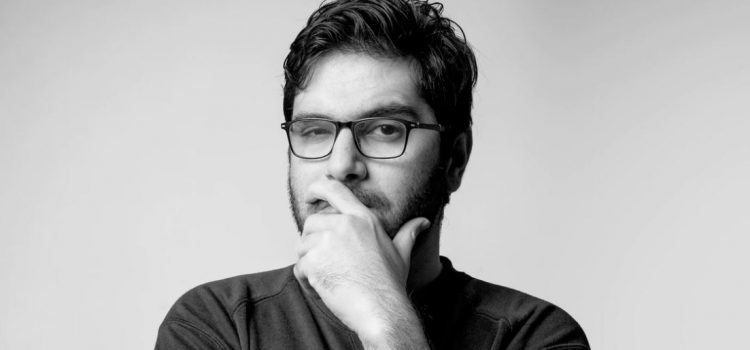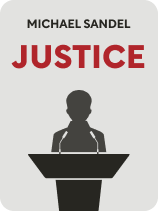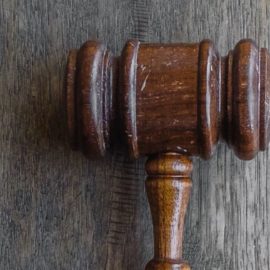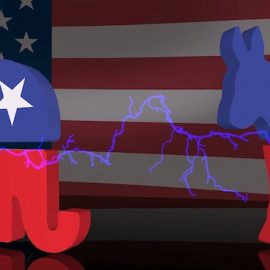

This article is an excerpt from the Shortform book guide to "Justice" by Michael Sandel. Shortform has the world's best summaries and analyses of books you should be reading.
Like this article? Sign up for a free trial here.
What is the difference between utilitarianism vs. libertarianism? Can the two be reconciled? To what extent should government restrict personal freedoms to ensure public safety and well-being?
Utilitarianism states that government should only concern itself with maximizing public welfare. Libertarianism, on the other hand, says that government should only concern itself with maximizing personal freedoms.
Michael Sandel explores the difference between these two ideologies and how their views apply to real-life political questions.
Maximizing Welfare: Utilitarianism
Sandel begins by discussing utilitarianism—a moral philosophy arguing that the morality of an action or choice depends on how much happiness or pain it creates. “Happiness” to utilitarians (which they call “utility”) means pleasure and the fulfillment of desires, while a lack of happiness means pain or deprivation of desires. Utilitarians argue that happiness and pain are the only ways we measure morality—morally good things make people happy, while morally bad things cause people pain. Therefore, utilitarianism states that the most moral choice in any given situation is always the choice that creates the most happiness for the most people possible.
To show how this applies to political questions, Sandel explores two important views that result from utilitarian thinking: that there are no guaranteed individual rights, and that we can measure happiness.
View #1: No Guaranteed Individual Rights
According to utilitarians, individuals don’t morally deserve guaranteed basic rights—things like a right to safety, freedom, or property. Instead, utilitarians only believe in giving these rights if doing so maximizes collective happiness. On the other hand, if harming an individual or depriving them of freedom maximizes collective happiness, then it’s morally justified.
For example, English philosopher and founder of utilitarianism Jeremy Bentham (1748-1832) argued that governments should round up homeless people and imprison them in labor camps. He claimed that this was moral because it would create more utility (a cheap labor force to lower the cost of goods, fewer homeless people on the streets, improving standards of living for the homeless) than it would pain (depriving homeless people of freedom).
View #2: People Can Measure Happiness
To understand how much happiness or pain an action creates (a crucial part of determining what’s most ethical), a utilitarian believes they can measure happiness on a consistent scale. Sandel explains two main perspectives on how to do this:
1) Quantitative method: Some utilitarians (including Bentham) value all pleasures equally in their measurements of happiness. This non-judgmental approach makes it easier to measure pleasure and pain—they just consider how many pleasures a decision will create rather than which pleasures are lesser or greater. For example, a quantitative method would value pleasure from viewing the Mona Lisa as equal to pleasure from viewing The Real Housewives of New Jersey.
2) Qualitative method: Other utilitarians like John Stuart Mill (1806-1873) argue for a hierarchy of pleasures instead of valuing them all equally. They suggest that general consensus can create this hierarchy—if people generally agree that one pleasure is better than another (focusing on what they actually like, not on what they think they should like), then society will value that pleasure more highly. For example, if people generally accept that they enjoy The Real Housewives of New Jersey more than the Mona Lisa or that it’s “better art,” then a qualitative scale would value Real Housewives above the Mona Lisa.
Maximizing Freedom: Libertarianism
Sandel then contrasts utilitarianism vs. libertarianism. Libertarianism is a political philosophy arguing that the goal of the state is to maximize personal freedom. This goal comes from the libertarian belief that people own themselves. While this might sound abstract, libertarians use it in practice to argue for two kinds of freedom:
- Personal freedom: People have the freedom to direct and impact their own lives however they see fit. This is essentially the same as being free to use your property however you like—since you own yourself, you can “use” yourself to live however you like.
- Economic freedom: People own their labor and whatever it creates. For example, if you own a lemon tree, you also own the lemons that it grows. Similarly, since you own yourself, you also own whatever you do and create.
Sandel further outlines these two forms of freedom, as well as how they influence political questions:
Personal Freedom
Sandel explains that to protect personal freedom, libertarians oppose two main kinds of laws:
1) Safety laws: Since everyone owns themselves, they have a right to take personal risks if they so choose. Libertarians argue that safety laws limit this freedom and are therefore unethical. Examples of these laws include the criminalization of potentially dangerous substances like heroin as well as more mundane rules like speed limits.
2) Moral laws: Since everyone owns themselves, they have a right to live according to their own moral code. Therefore, libertarians believe that laws enforcing one specific moral code are unethical. For example, libertarians object to laws against homosexuality or abortion—they believe people have a right to anti-gay or anti-abortion moral beliefs, but that it’s unethical to limit the freedom of those who hold different views.
Economic Freedom
Sandel says that to preserve personal ownership of labor and whatever it creates, libertarians also oppose most economic regulation. In particular, they argue against wealth redistribution—anything from higher taxes on the rich to a government-mandated minimum wage. Libertarians argue that wealth redistribution is essentially theft: the government forcibly taking money that people have a right to. Some even argue that wealth redistribution is the same as forced labor, since it involves the government forcefully taking the result of someone’s labor.
The Libertarian State
While libertarians believe that the state should maximize freedom, they do recognize that it’s the government’s role to prevent people from limiting the freedom of others. Therefore, the ideal libertarian state does need some laws and government structures. In particular, libertarians argue that the state must criminalize individual actions that limit the freedom of others, like theft or murder. It also should enforce contracts and punish fraud to ensure that people are free to use their property and labor in the way they intend.

———End of Preview———
Like what you just read? Read the rest of the world's best book summary and analysis of Michael Sandel's "Justice" at Shortform.
Here's what you'll find in our full Justice summary:
- A philosophical look at the goal of our society and its laws
- What a moral and just government and society look like
- Sandel's suggestions for how to create a more moral world






